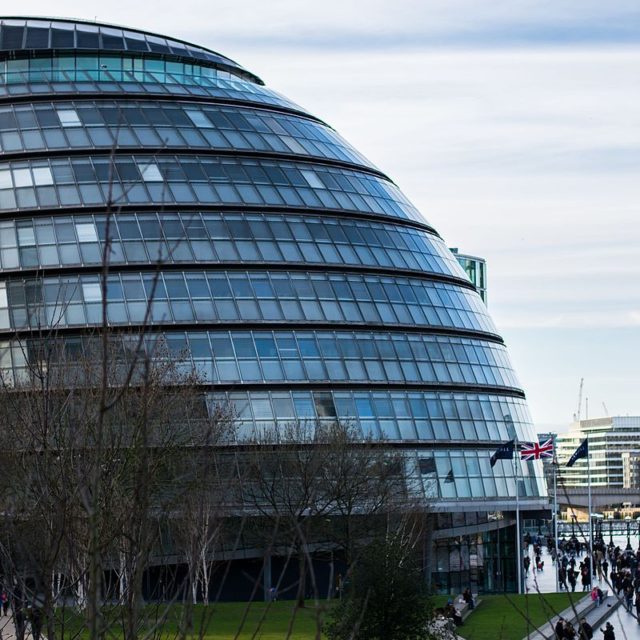In early March 2020, when London was starting to think about Mayoral elections – initially due in May 2020 – we organised a short series of roundtables to discuss key policy issues for the City of London. Following the 12-month postponement of all May elections due to Covid, the London Mayoral elections have now been confirmed for 6 May 2021. Therefore, we have decided to resume our series of roundtables to discuss the key issues facing the new Mayor of London after the elections.
Our first roundtable in March 2021 addressed several kinds of reason why the London Plan could be seen as no longer relevant. It also discussed their implications for the next Mayor faced with taking the Plan process forward. Among these reasons were:
- the great uncertainties arising from the Covid pandemic about short- and long-term trends in growth prospects and other key assumptions underlying the newly approved Plan;
- the shortfall between housing targets and assessed housing needs in the finally ‘agreed’ (2021) version of the Plan;
- the lack of credible evidence that even the reduced targets for housing delivery could actually be met;
- the unwillingness of the Mayor to respond actively to the injunction of the previous Plan’s Inspectors (and Outer London Commission advice) to investigate alternatives to the compact city model in collaboration with authorities across the Wider South East;
- the lack of active support from central government for getting this Plan in place in due time, or for any action to help make the achievement of either the Plan’s housing delivery target or the government’s own much larger future target more likely;
- the lack of fit between a long-term strategic planning system and directly elected Mayors with 4 year terms – when it takes 2 years plus for a Plan to be prepared, a further 2 or more for it to be ratified, and another 5+ years before even its early outcomes can be seen and appraised.
The three initial speakers emphasised very different aspects of the Plan, both positive and negative. One very positive view was the Plan is a necessary instrument to support the development of London specific but globally relevant policies, ranging from climate change through carbon emissions to affordable housing. A more negative view was that the system was far too detailed and acted more as a development management document than a strategic plan and as such limited the value of local plans. This was supported by a more general concern that it tried to deal with absolutely everything and must therefore inherently fail. There was also clear agreement that the relationship with the Wider South East was inadequate and that the fact that the Mayor had no legal duty to cooperate made that relationship more difficult.
Attendees followed on by discussing whether the fact that it was drafted under very different circumstances made it less valuable. There was some disagreement both about how extensive these changes will be and about whether the London Plan is adaptable.
The London Plan as a strategic planning document
The discussion then turned to the Plan’s role as a strategic planning document, looking to meet medium and long term objectives. Some praised it as a model for other planning departments at a city-region or regional level throughout the country. By putting forward a long-term vision for London by distributing housing targets and employment needs across the Greater London Area, the Plan allows local authorities to focus more directly on local issues and on delivery in line with these objectives. This helped enable the design and delivery of ambitious London-wide initiatives.
Sceptics emphasised the problems associated with the Plan’s length and detail and argued that the scope was too broad and the detail too great to act as a guiding document. There were worries that it would create obstacles to local planning processes, resulting in delays to the delivery of housing targets, and undermining the capacity of the Plan to achieve its proposed outcomes.
The Wider South East
One of the most frequently raised issues was the Plan’s inability to engage with authorities beyond the GLA boundaries. This is particularly relevant in the context of the pandemic, with a high number of Londoners moving outside the GLA boundaries. A number of proposals were made to create channels of communication and collaboration with authorities in the wider South East (WSE). It was felt that such collaboration should focus on issues that affect the region as a whole, such as transport, waste, water, housing, employment space, and other strategic matters.
It was noted that the London Assembly had already recommended the creation of a secretariat to put forward evidence-based strategies on how to work with the WSE. However, many stressed that the viability of any coordination mechanism depends on policy and institutional issues beyond the Plan’s scope. Any successful approach also requires willingness to collaborate by both parties, which has proved difficult in the past.
Housing delivery
Housing delivery was also central to the discussion, particularly with respect to the lack of appropriate mechanisms and incentives to deliver the housing targets set in the Plan. Given the problems with engaging with the WSE for housing delivery purposes, and the extent to which current development constraints are hindering densification targets, some favoured a more pragmatic approach. For instance, greater flexibility both with respect to the potential use of some Green Belt land within London (probably involving swaps) and to industrial land, both in terms of planning for future industrial need and enabling more housing.
Concerns about the lack of progress on the completion of Crossrail 1 and the construction of Crossrail 2 were raised, especially given how much housing delivery over the next decade depends on that infrastructure being in place. This led to discussion of a closely related issue: the extent to which the financial crisis that Transport for London is currently facing could hinder TfL’s role in both spatial planning and housing delivery.
It was further argued that the Mayor has inadequate incentives to pursue the Plan’s housing delivery targets because he will not be there to face the consequences. Since the next election is only three years away, the Mayor elected in May will be long gone from power by the time the London Plan or its housing policy can be deemed a success or a failure. The fact that this issue is true for any Mayor undermines voters’ belief in the system.
Another issue raised was that of inequality in London and the Plan’s inadequacy in addressing this issue. Arguably, given both rising inequality and the continuing affordability issues in the market place, the provision of housing for the range of people on lower incomes should have taken precedence over overall housing targets within the Plan. This issue has come even more to the fore in the pandemic, which has hit most strongly in the city’s most deprived areas.
Final comments
In this roundtable, there was no overall agreement about the relevance of the new London Plan t, given the rapid economic and social change occurring. There were also long standing concerns about whether the Plan tries to do too much with too few powers, resulting in limited success.
But there was also considerable agreement that the London Plan is still relevant as it provides a medium and long-term vision that can manage constantly changing scenarios and enable ambitious city-wide policies. There was also understanding that many of the obstacles faced in delivering the Plan’s objectives are beyond its official scope. As such it is necessary to engage both with central government and with authorities both inside and outside London if it is to be successfully implemented.
The discussion made it clear that there is still much to be debated around the appropriate form of planning for London. Fundamentally, is the complex and time consuming process of London plan making – which is then not evaluated and never matches political timescales –still the best we can do? Many think it probably is – but others think that, as a strategic authority the GLA cannot continue to promise so much more than it delivers, particularly in terms of housing.






1 Comments